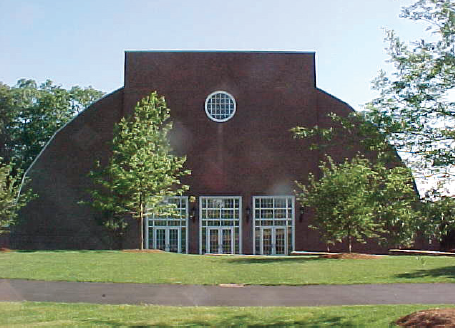In the city of New Haven (CT) and the small, suburban towns that surround it, if you look for it, you can find a great game of squash. In a tradition that echoes The Field of Dreams, “if you build it, they will come,” New Haven is invigorating the game of squash at an exciting, and exponential level. Between Yale University, the New Haven Lawn Club, and now Hopkins School joining the movement with the addition of a six court squash facility to its campus, New Haven is securing its position at the forefront of the squash revolution.

In 1999, Yale made the hardball to softball court conversion and opened its newly renovated Brady Squash Center featuring 15 international courts (three of which are all-glass with spectator viewing stands), along with coaches and team rooms. The University also houses the United States Squash Hall of Fame. Considered by many to be the “mecca” of squash in America, Yale’s program is the product of the leadership engineered by Yale Squash Coach, Dave Talbott.
The New Haven Lawn Club, a members-only in downtown New Haven, has started a squash legacy of its own. Its facility, that once held five hardball squash courts (built in the 1920s), converted three of them into new softball international courts in the early 1990s—leaving one hardball court for the remaining traditional, “old school” squash enthusiasts. Early this year, though, the ever-increasing demand for the softball game spelled the end of the hardball era in New Haven when the club decided to convert the last of its hardball courts. The Lawn Club now has over 80 members of all ages and skill levels playing regularly—it is not uncommon to see a gray-haired lawyer or University professor hashing it out with a high school sophomore. There are ladder boards, inter-league play, and an annual champions’ tournament. Everyone is there to stay active and have fun!
Another prominent figure in the New Haven squash world is Yale’s Gareth Webber, Assistant Head Coach of Men’s and Women’s Varsity Squash at Yale University. Gareth has aided the promotion of squash in the community since moving here from Wales. Gareth runs the Ultimate Squash Club out of New Haven—squash camps for players of all ages and abilities held at the Brady Squash Center and at Choate Rosemary Hall. These programs bring in players from all around the world.
As a result of the growing community effort and enthusiasm, New Haven also conceived the grass roots program, Squash Haven, in 2006. Squash Haven’s mission is to promote academic, athletic and personal growth through a syllabus of squash, tutoring, and community service. Julie Greenwood is the Director of the program, and it has become a popular extracurricular youth activity in the Greater New Haven community and continues to prosper each year.
The number of squash venues in New Haven is expanding. While the impressive Yale squash facility, home to many national and international tournaments, and the New Haven Lawn Club were once the only squash facilities in New Haven, a new star is on the rise. A modern, six-court squash facility has been built in the old basketball “cage” on the campus of Hopkins School. Hopkins, a private preparatory school established in 1660, is the third oldest secondary institution in America. Its hilltop campus overlooks downtown New Haven from its Westville location, and now includes a sate-of-the-art squash facility. The incentive for Hopkins to have on-campus courts was greatly influenced by the growing popularity of the game in New Haven and by the number of youths from the area involved at the junior level. By growing its squash program as an alternative choice for a winter sport, Hopkins will undoubtedly, in a short time, be a squash force to be reckoned with. Hopkins is a wonderful addition to the squash legacy in New Haven—a city as deep in its roots as it is founded in its traditions, squash is the latest-greatest to influence the legendary Elm City.


